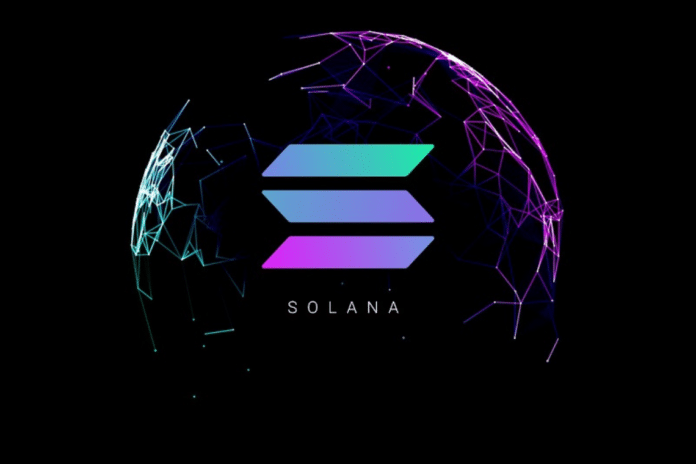In this article we will delve into Jito, a liquid staking crypto platform developed on Solana that has been making a lot of noise in recent days.
Users can stake their SOL on the protocol to obtain the liquid resource JitoSOL, with which they can optimize their profits by receiving MEV rewards.
As of today, over 450 million dollars in crypto have been locked on the platform, which has earned the second place in the ranking of dapps with the highest TVL on Solana, behind only Marinade Finance.
His success and fame are also due to the airdrop of the JTO token, which Jito has distributed to its users and SOL stakers.
Over 270 million dollars in JTO have been airdropped to the community.
Below is everything you need to know about this fascinating decentralized application.
Summary
Jito: the platform that revolutionizes liquid staking on Solana
Jito is a provider of liquid staking services that operates on the Solana blockchain and allows its users to obtain maximum returns on their crypto.
The platform functions as an open-source transaction validator client for Solana and offers rewards for staking, as well as additional income through MEV.
Practically speaking, those who want to lock their native SOL can rely on Jito’s stake pools, which include one or more validation nodes and allow borrowing the JitoSOL coin, a liquid resource that can be used in various ways in DeFi.
At the same time, validators earn a profit from auctioning off blockspace to builders who pay to have a preferential lane in the construction of a block and the ordering of transactions (to delve deeper into the MEV issue, read this article).
This profit, known as MEV rewards, is partially transferred to the same stakers who choose Jito as a supporting entity, incentivizing the flow of money.
By doing so, those who stake SOL on the platform earn double profits: on one hand, the JitoSOL crypto in liquid form to use in lending applications or yield farming, on the other hand, a boost in MEV rewards.
To ensure the security of the protocol, JitoSOL not only undergoes thorough checks but also operates on a non-custodial basis (unlike Lido’s wstETH).
This means that even if Jito were to disappear, the owners would still maintain complete control over the deposited SOL and accumulated rewards.
The intriguing mechanism of the protocol has caught the attention of Anatoly Yakovenko, CEO of Solana Labs, who has praised the potential of Jito and the advantages offered by its infrastructure.
Currently, Jito represents the second protocol with the highest TVL on Solana, with a capital of approximately 450 million dollars locked on it, second only to the Marinade Finance DEX.
The growth of this LST platform in recent months has been astonishing: consider that in September the TVL of the platform amounted to just over 30 million dollars.
From mid-October onwards, the flow of users on the protocol has exploded, thanks also to the increase in the price of SOL and the popularity of DeFI applications on Solana, leading Jito to record crazy numbers.
Jito launches its own crypto JTO with an airdrop to the community
On Thursday, December 7th, the Jito team, in an attempt to decentralize its ecosystem, launched the new governance token JTO, with a crypto airdrop to protocol users and Solana stakers.
The resource was launched with a maximum supply set at 1 billion dollars, of which 115 million are currently in circulation.
Of these, 90 million were airdropped to the Jito and Solana community, for a total value of approximately 270 million dollars.
All eligible individuals have up to 18 months to claim the gifted crypto: to check eligibility on your address, you can click here and connect your wallet.
The hype for this airdrop has been remarkable, considering that the major exchanges in the sector such as Binance, Coinbase, and Bybit have accompanied the launch with a listing on the main cryptocurrency trading pairs.
According to Coindesk, users who have previously interacted with the id liquid staking protocol have received a minimum allocation of 4,941 JTO tokens, which, based on the closing price of the first day of trading on Binance, corresponds to $11,800.
In its debut on the crypto markets, JTO reached a trading volume of 1.1 billion dollars with a success comparable to that of Celestia (TIA) recently launched.
The distribution of rewards to the Jito community is taking place at a hectic time for the entire Solana ecosystem, which had seen the price of SOL rise by 540% since the beginning of the year.
DeFi built on the cryptographic network has managed to recover some of the funds lost during the 2022 bear market, but still has a long way to go to reach its all-time highs.
The release of airdrops like JTO’s encourages the public to use decentralized product suites such as staking protocols, lending, and yield farming, contributing to a revival of the chain.
Most likely, given the strong trend that is underway, other protocols will follow in Jito’s footsteps in the coming weeks, trying to attract traffic and become competitive with other external competitors.
Zano Shermani, CTO of Jito Labs, recently stated on X that the new generation of projects has learned the lesson from their predecessors who released assets with “rather poor tokenomics” during the previous Solana bull market between mid and late 2021.
Now things have changed and the airdrop marketing process seems to be the one that brings the best results in the medium term.
Below is a graphic summarizing the JTO tokenomics: the majority of the supply will be unlocked in the coming years. As for the airdrop, only 90% of the total dedicated to it has been released. The remaining 10% will be distributed within a year.
Small issues during the launch of JTO, but optimistic predictions on the price of the crypto
It is very interesting to observe how a successful launch like that of the crypto JTO, was not without small problems along the way, common to any decentralized project in its development phases.
According to some users on X, Jito’s website has experienced what is known as a DDoS attack (Distributed Denial-of-Service), which involves an excessive amount of traffic on the protocol that can damage its usability.
This is essentially a condition in which some malicious individuals intentionally overload a server or network, leading to the malfunctioning of certain functionalities.
The same user who reported the presence of a DDoS attack observed that the official Jito website went offline for a few minutes and then returned to functioning properly.
Usually, those who carry out these attacks then demand a ransom from the server owners to bring down all activity and restore normal traffic.
The Jito team has not provided any information regarding this incident and at the moment it seems that all the problems have been resolved on the platform.
The topic of spam attacks and DDoS overload attempts has been a central issue in the Bitcoin landscape in recent weeks after Ocean, a well-known mining pool, started filtering Ordinals transactions due to concerns about network congestion caused by the excessively high block size of the inscriptions.
Despite this small technical hiccup, overall the launch of JTO has met the expectations of all project stakeholders.
The price of the coin has continued to rise after listing on various exchanges and expert forecasts tell us that the price action in the coming months could be extremely bullish.
Regarding the future performance of Jito’s crypto, the Bitget Research team has conducted its own analysis, which we report below:
“Current market valuation and future prospects: the current circulating market capitalization of JTO is $350 million with a total market capitalization of $3 billion. Most of the circulating shares are transferred and provided to liquidity providers. It is expected that next year, driven by market trends and the development of Solana, JTO could challenge a total market capitalization of $10 billion. However, starting from the end of 2024, a gradual market dilution and consequent price decline are predicted.”




